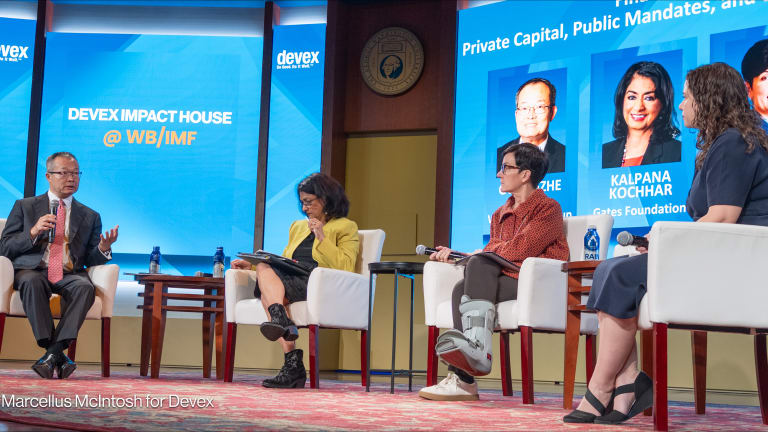When the first significant example of a country-level blended finance initiative emerged at the 26th United Nations Climate Change Conference, or COP 26, in 2021 — the Just Energy Transition Partnership, or JETP, announced by South Africa — it was welcomed as a constructive model to help bridge the global sustainable development financing gap.
This gap is particularly acute in emerging and developing economies, and it is growing — up from $2.5 trillion in 2015 to an estimated $4 trillion per year now. This investment gap cannot be closed by public finance alone — much more private-sector investment is required. But how are we to mobilize this amid a continued aversion to emerging market risk in the private sector?
Blended finance, where concessional capital is used to mobilize private sector investment, has long been recognized as a solution across the market but has historically been applied at the project level. This limits its capacity to change the rules of the game which renders projects difficult to bank in the first place: a lack of project pipeline, small ticket sizes, persistent regulatory friction, and high political and currency risk.








